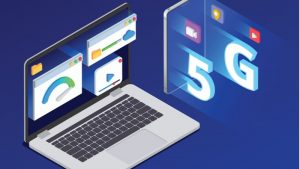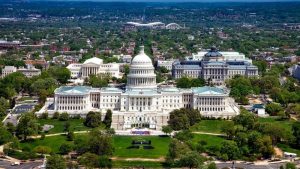As the Senate reexamines the Universal Service Fund (USF), education technology leaders are urging lawmakers to protect and modernize the E-Rate program, which they say has connected nearly every U.S. public school to the internet but now faces mounting cybersecurity and funding challenges.
The U.S. Senate voted on May 8 to nullify a rule issued by the Federal Communications Commission (FCC) in 2024 that allows schools and libraries to use the government’s E-Rate program to buy discounted Wi-Fi hot spots and related mobile connectivity services for off-premises use by students, school staff, and library patrons.
The Federal Communications Commission (FCC) on Oct. 28 announced the launch of its Tribal Library E-Rate Advocacy Program (T-LEAP), which builds on the agency’s Tribal Libraries Pilot Program and will give Tribal libraries the chance to sign up for one-on-one assistance to start learning about and working on the E-Rate application process.
The Federal Communications Commission (FCC) has proposed a final rule that, if adopted, would allow schools and libraries to use funding from the E-Rate program for off-premises use of WiFi hotspots.
The Federal Communications Commission (FCC) has proposed allowing schools and libraries to apply for funding from the FCC’s E-Rate program for Wi-Fi hotspots and wireless internet access services that can be used off-premises.
The Federal Communications Commission (FCC) has adopted a new order that provides Tribal libraries and other E-Rate participants expanded access to funding to obtain affordable, high-speed broadband services and equipment to connect students and library patrons with online learning opportunities.
The Federal Communications Commission (FCC) announced $68 million in funding for its latest round of Emergency Connectivity Fund (ECF) awards March 23, as well as its third application window for ECF funding, which it says will likely be the last round before the program’s funding is exhausted.
The Federal Communications Commission’s (FCC) Wireline Competition Bureau (WCB) seeks comment on the Emergency Connectivity Fund for education connections and devices to address the homework gap during the COVID-19 pandemic.
The Federal Communications Commission (FCC) is seeking public comment on petitions to allow E-Rate funding to be used outside of schools and libraries in order to expand connectivity for students doing distance learning, according to a Feb. 1 public notice.
The Federal Communications Commission (FCC) on March 18 waived gift rules for its Rural Health Care (RHC) and E-Rate programs to allow broadband service providers to support telehealth and remote learning capabilities during the COVID-19 coronavirus outbreak.











